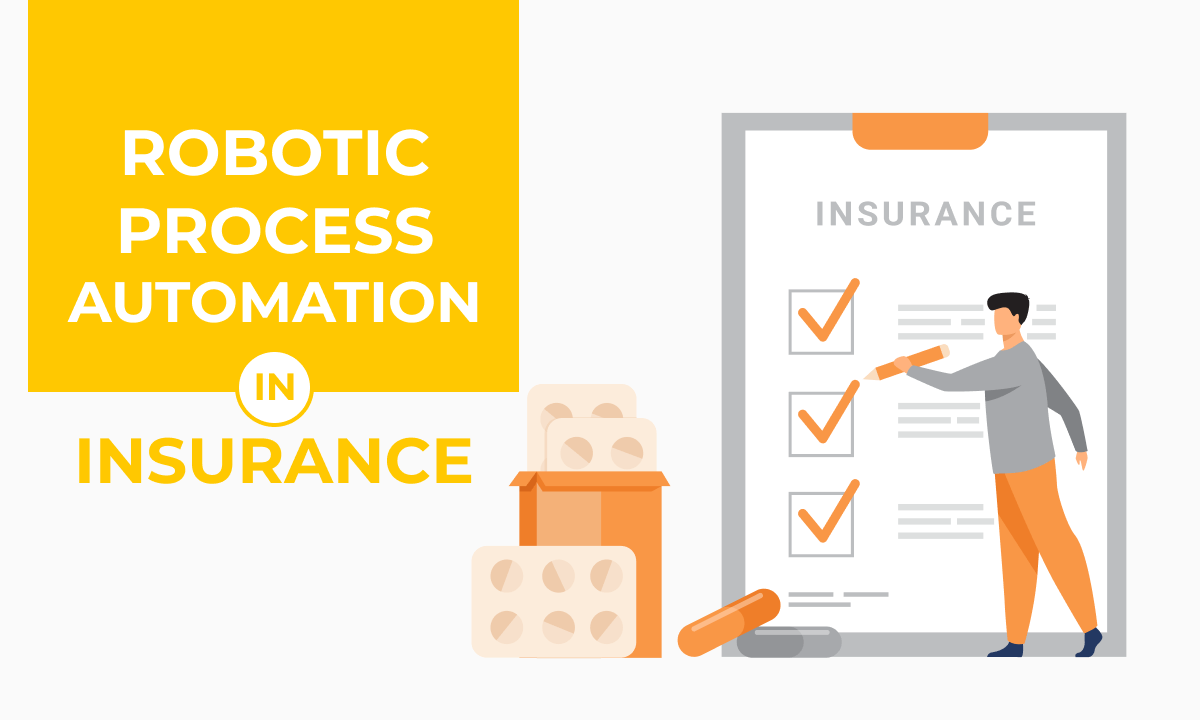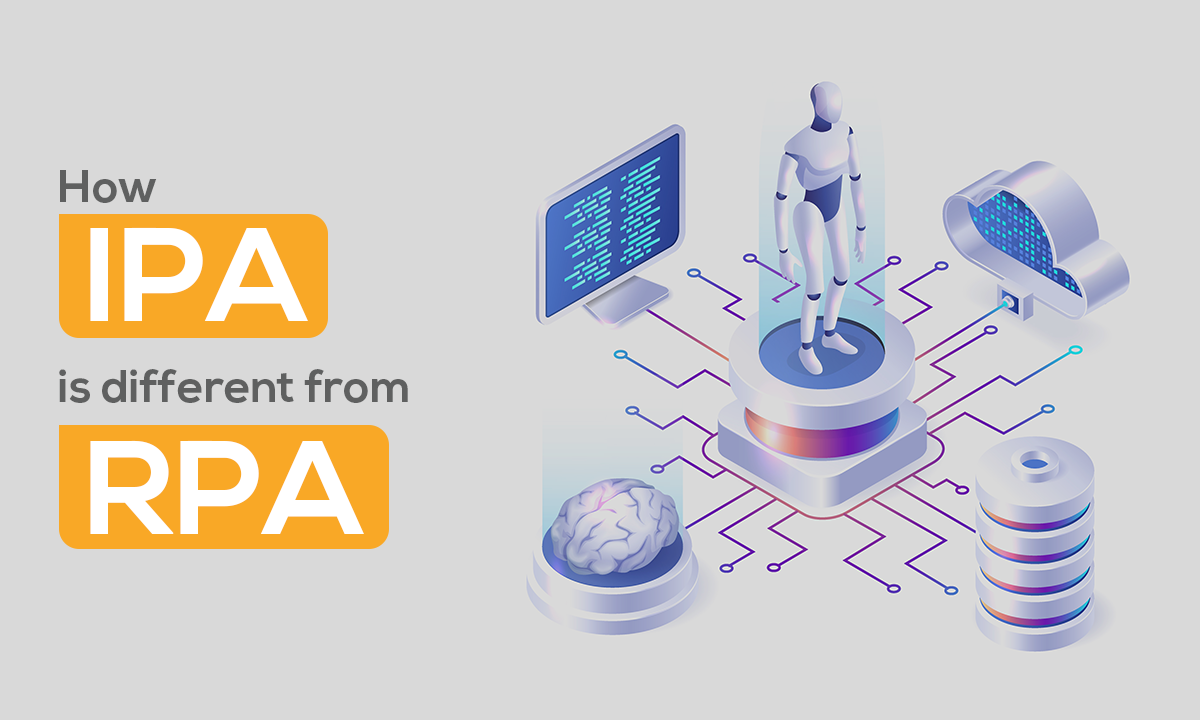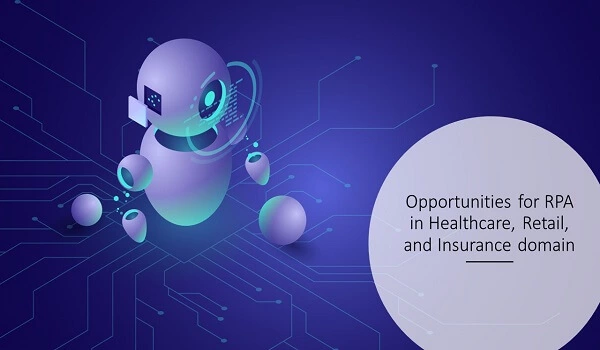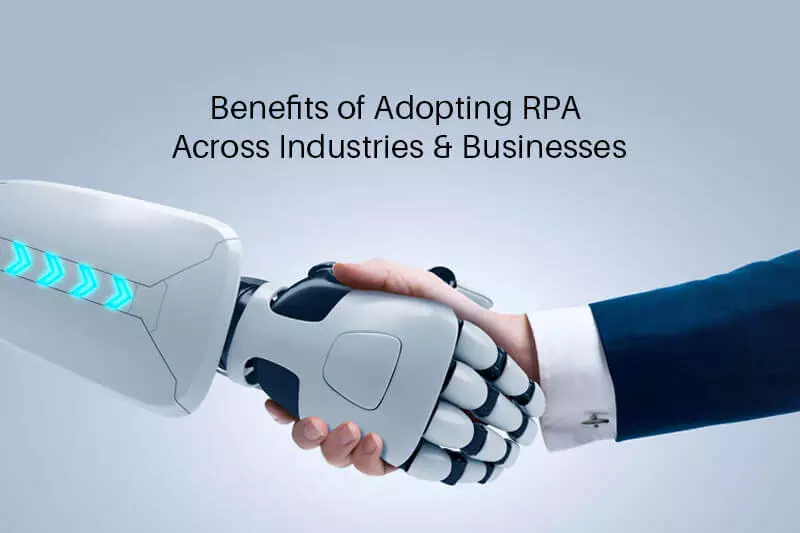
Insurers have become accustomed to the marketing realities of low premium growth and rising losses costs over the years. The insurance industry is now at an inflection point, where emerging technologies drive an outcome-oriented operations agenda. Not all insurers can embrace change, unfortunately.
There are many reasons why insurers have difficulty with digitalization. However, there are some common obstacles.
Insurers, agents, brokers, and other professionals are turning to Intelligent Process Automation Solutions to address these issues and create opportunities. Insurance requires many manual tasks, such as data entry and report generation. This can lead to errors, slow processing and deterred customer relations.
According to Mckinsey and Company, the insurance industry can automate 25% of its processes by 2025. Insurance agents and insurance carriers can use RPA technology to improve operational efficiency, innovate, and offer a more human experience to customers.
Uses of RPA in the Insurance Sector-
Claims Processing
Claims processing can be time-consuming, detailed-oriented, and document-intensive. Additionally, collecting data from multiple sources and processing claims promptly requires undivided attention.
With RPA technology, claims can be processed up to 75% faster than by human beings. Leveraging and integrating with RPA Platform allows organizations to eliminate legacy application silos and integrate claims processing data from multiple sources. Systems can use NLP and OCR to extract data, input claims errors, or verify fraudulent claims. This reduces the need for human intervention in the insurance claims process. RPA technology speeds up pay-outs by reducing multiple touchpoints. Thereby having humans to validate processing done by the bots.
Underwriting process
Underwriters of insurance must evaluate and analyze the risks involved in insuring individuals and assets. The whole underwriting involves gathering information about insurable assets or people.
RPA bots that incorporate AI and machine learning can:
-
In the internal system, fill in the required data fields.
-
Access data from both internal and external locations
This streamlines the underwriting process for the insurance industry, so customers make decisions quickly, and underwriters are free to take on more difficult tasks.
Compliance with regulations
Insurance industry regulations are in place to standardize documentation and audit trails. Manual compliance risks human error, regulatory violations, and failure to comply with regulations. Compliance can also be difficult when there is a high volume of record maintenance.
RPA tools automates the processes and ensures accuracy by following predefined instructions. It keeps a log of all changes. Insurers can access log files to track compliance via internal review easily.
RPA bot can automate -
-
Validation of customer data and client research
-
Compliance report generation
-
Operation Data Security
-
Notification of account closure
Finance and accounts
Insurance agents are often responsible for processing invoices, payroll management, and financial transactions. Insurance agents are often challenged to provide error-free customer service due to high volumes of data processing. RPA bots replace manual labour by generating reports and pushing notifications.
RPA technology can reduce the cost of insurance policies and financial transactions, and alerts are generated for suspicious claims.
Policy administration
Insurance industry policy administration includes rating, binding, renewing, issuing, and endorsing. You must also know the costs of maintaining a policy administration system. These challenges make it difficult for the insurance industry to grow its customer base.
RPA tools automate transactional and administrative activities such as credit control, tax, regulatory, and accounting settlements. They can navigate multiple applications, saving you significant time and reducing your overall workload.
Process and business analytics
You must provide the best service to your customers as an insurance provider. It is difficult for insurers' agents to measure and track operational efficiency and identify areas that need improvement due to the sheer volume of paper-intensive and operational processes.
RPA technology allows tasks to be performed easily and tracked efficiently by RPA bots. Audit trails support regulatory compliance and further enhance process improvement. This is how Robotic Process Automation Solutions helps improve customer response times and streamlines business processes using a customer-centric approach.
Legacy Applications
Many insurance companies still use legacy applications for their business processes. This reliance can create problems when communicating with other systems. Insurance companies often have difficulty integrating new ERP and BPM solutions with existing systems when they are implemented.
RPA technology can be used to bridge the gap between incompatible legacy applications, new ERP, or BPM solutions. This technology is easy to integrate into existing workflows, making the business process more efficient. RPA tools can be used with any system to enhance back-office efficiency or Customer Experience.
Policy Cancellation
Insurance agents find it tedious and time-consuming to cancel policies manually. Insurance agents must interact with Excel, CRM, Excel, and PDFs to process cancellation requests. Policy cancellation involves many transactional tasks such as cancellation date tally and inception date, policy term, etc.
With Automation in insurance, policy cancellation can be made one-third of the time. RPA technology allows seamless switching between all interactions, allowing customers to get a faster resolution.
Query Resolution
The insurance industry receives a high volume of customer queries, which is a departure from other industries. Agents who receive many requests can find it difficult to provide timely resolution.
RPA technology allows insurance agents to respond quicker with bots. Bots can interpret emails and incoming calls and solve simple queries using predefined rules and natural language processing technology.
If the RPA bot detects complicated queries, it automatically redirects them to insurers' agents.
Conclusion
Insurance carriers must adapt to change to maintain a competitive edge over their competitors.
RPA technology can streamline the insurance process by integrating legacy applications with modern solutions. Insurance carriers can reduce costs and workload by incorporating Robotic Process Automation Solutions into their operations. They can also provide fast, personal and compassionate service to customers.








